Create an instant online store.
Get your 14-day free trial. Pick a professional template, start selling today, and upgrade anytime.



- Sellfy Blog
- Tips & tricks
- | by Susanna Puusaag , Jan 20, 2025
How to make and sell custom merch in 2026

Are you a content creator aiming to grow your business with personalized merchandise? Look no further—you’re in the right place, especially with Sellfy at your fingertips!
Sellfy, an eCommerce platform designed for selling merch, offers an ideal solution to kickstart your journey.
With features like advanced store customization, built-in email marketing, and no payout threshold, Sellfy makes it easier than ever to sell your own print-on-demand (POD) products:
- Production costs are included in the merch product price.
- Sellfy’s partner manages fulfillment, printing, and worldwide shipping, paid by the customer.
- No inventory needed; products are stored at the POD partner’s warehouse.
This article will guide you through everything you need to know about how to sell merch online, with a special focus on launching a store and marketing your products. Let’s get started!
How to make outstanding merch
The first crucial step in creating outstanding merch is selecting a niche product with significant market demand. Following that is graphic design and the launch of your store, which we will cover in this section.
1. Find inspiration and come up with a concept
Three primary custom merch categories stand out among buyers:
- Custom clothing (t-shirts, sweatshirts, hats, hoodies, leggings, socks)
- Accessories (tote bags, stickers, phone cases)
- Home goods & decor (wall art, mugs)
Statista confirms that clothing is the most popular online shopping category, highlighting the enduring demand for custom t-shirts and hoodies. While various products are available, custom clothing remains the most profitable option.

Learn how to sell print-on-demand products
See howWith an understanding of what sells best, here are some examples of how to tailor your concept based on your niche:
- YouTuber—craft merch reflecting your channel’s humor or catchphrases.
- Musician/band—feature lyrics from popular songs in your merch.
- Artist/designer—showcase your art designs on your merchandise, promoting yourself as an artist.
- Content creator or influencer—develop merch embodying the reasons your followers love your content (e.g., cause, belief, hobby).
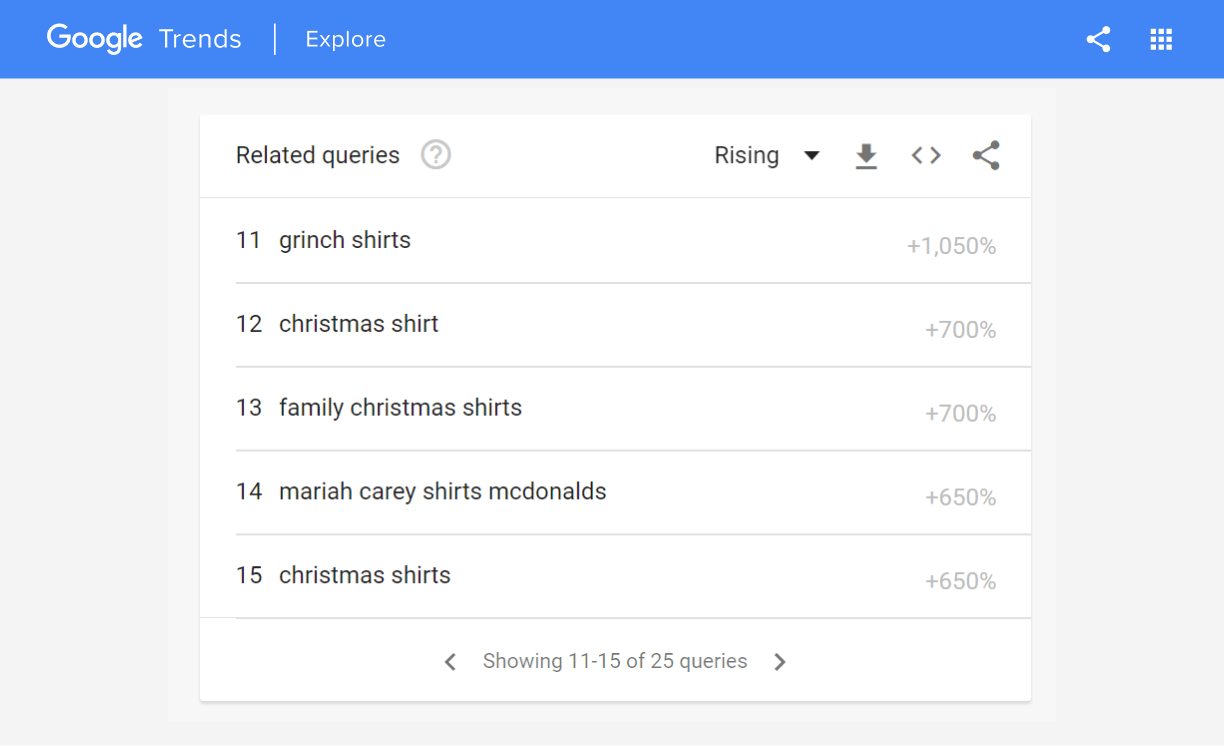
Consider the primary reasons why your fans would buy your merch. One way to find out what your fans want is by checking your stats. For example, Instagram Insights reveals your most popular content.
Apart from checking in with your fans, explore trends and conduct market research. Use tools like Google Trends, Ubersuggest, and Google’s keyword suggestions. And, finally, consider stalking competitors’ profiles and websites to identify potential gaps in the market (such as similar products being sold at higher prices).
2. Design your custom merch
After identifying your niche product, you can delve into the fun part—design!
You have three options:
- Explore royalty-free graphic resources
- Utilize free programs and design tools
- Hire a freelance graphic designer
Explore royalty-free graphic resources
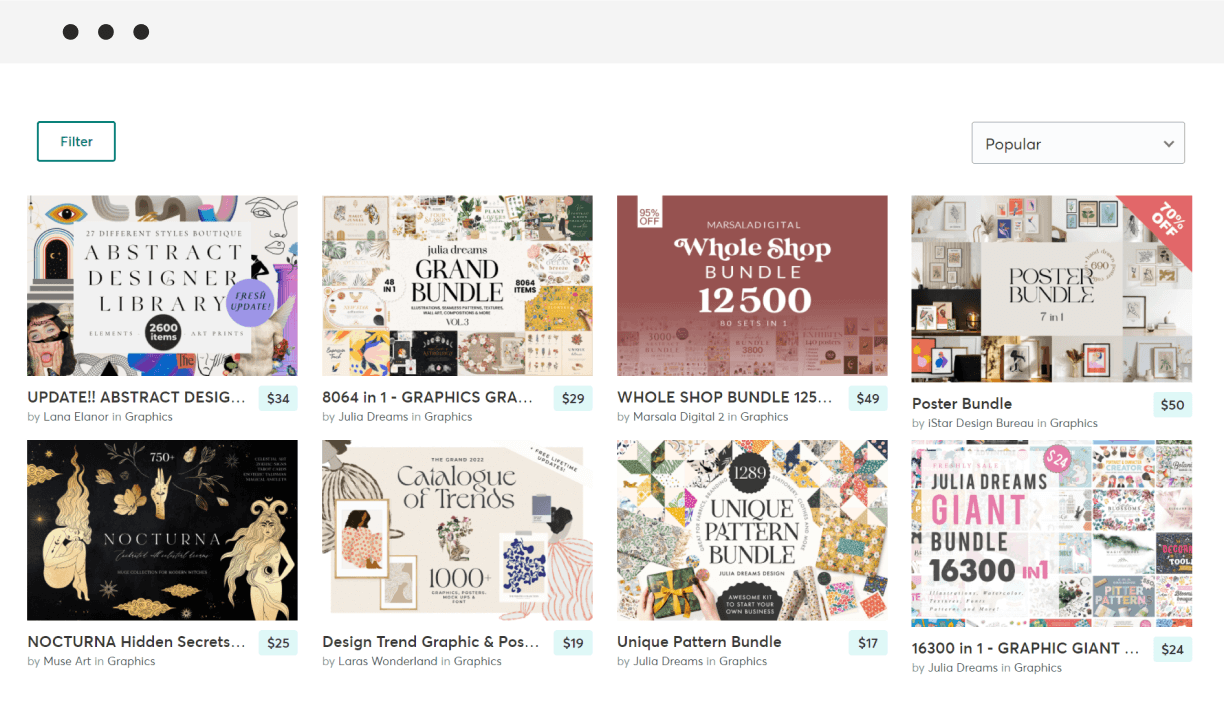
Creating your own custom merch design may seem challenging, but you don’t have to start from scratch.
Explore these online resources for royalty-free graphics, photos, and fonts:
- Vexels—vector graphics tailored for t-shirts and merch.
- Shutterstock—offers thousands of high-quality free photos and vectors.
- Flaticon—1,720,000 icons in every category, with artist attribution needed for free use.
- Freepik—similar to Flaticon, but requires a Premium Freepik License for commercial use.
- Creative Market—a marketplace with over 880,000 pre-designed vector graphics.
- Etsy—another marketplace akin to Creative Market.
Use free programs and design tools
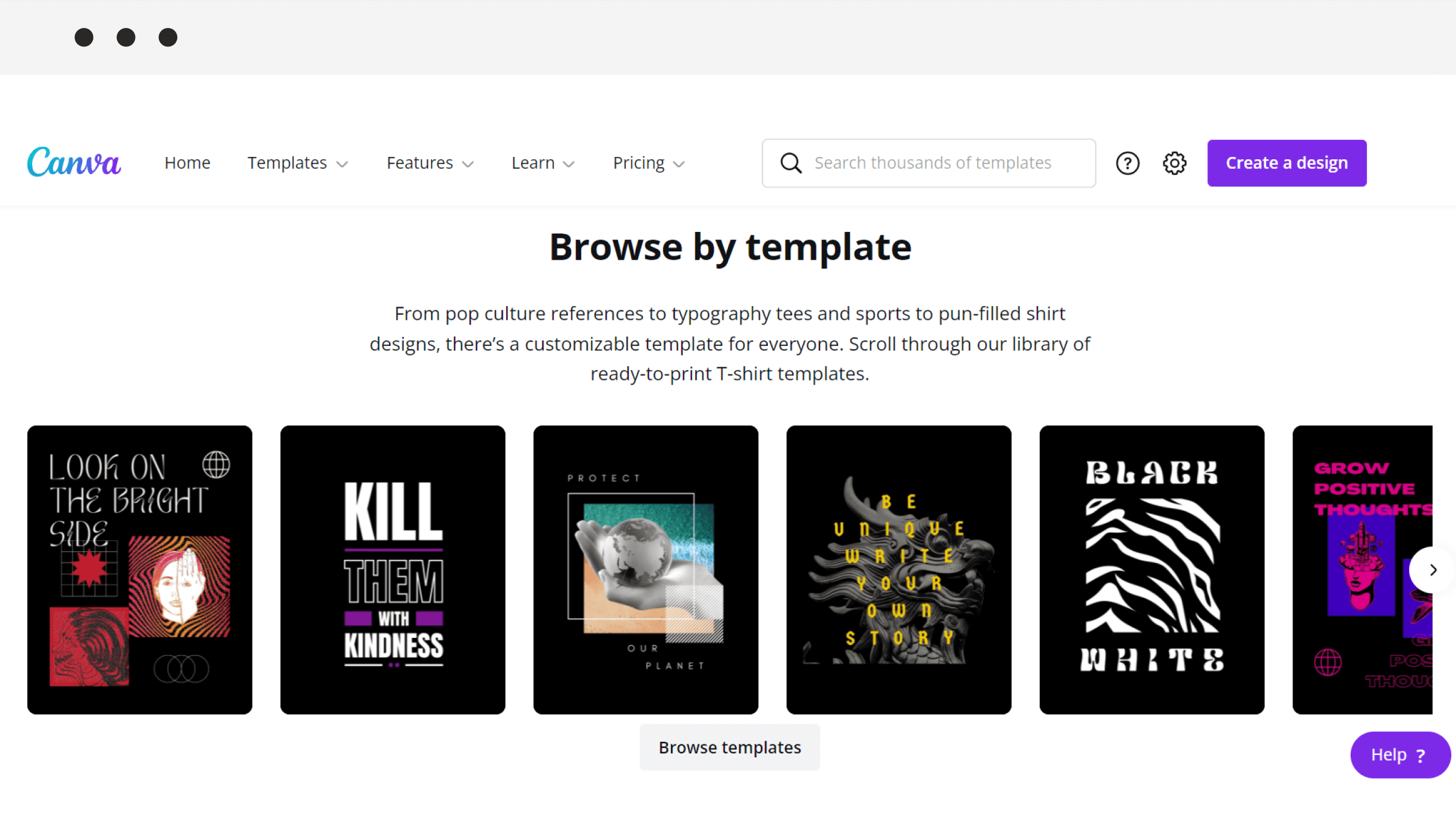
The go-to design programs are Adobe Photoshop and Illustrator, which allow you to create vector designs for illustrations, logos, or typography. Despite the price tag and steep learning curve, Adobe offers helpful tutorials.
For a cost-free alternative with similar features, you can try Inkspace, an open-source design tool. If you prefer a more user-friendly option, Canva is a free online tool with a dedicated section for t-shirt design, offering thousands of premade templates.
Hire a freelance graphic designer
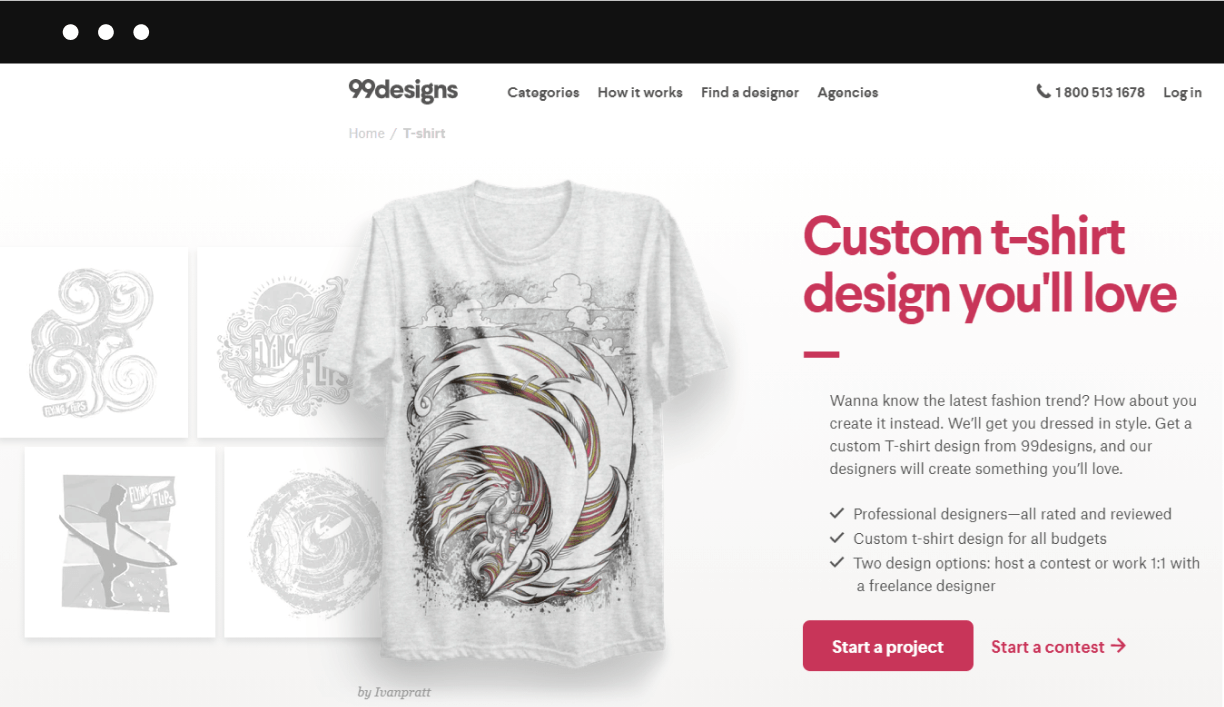
For simple tasks like creating an image with a catchphrase, you likely won’t need a designer. Yet, more intricate designs with a personal touch might require additional assistance.
It’s crucial to collaborate with a designer who shares your vision. But, finding a good, reliable designer can be challenging, leading many creators to online marketplaces for skilled freelancers.
So, if you’re undecided on a single designer, consider launching a t-shirt design contest on 99designs. This way, you’ll be able to work with multiple designers simultaneously.
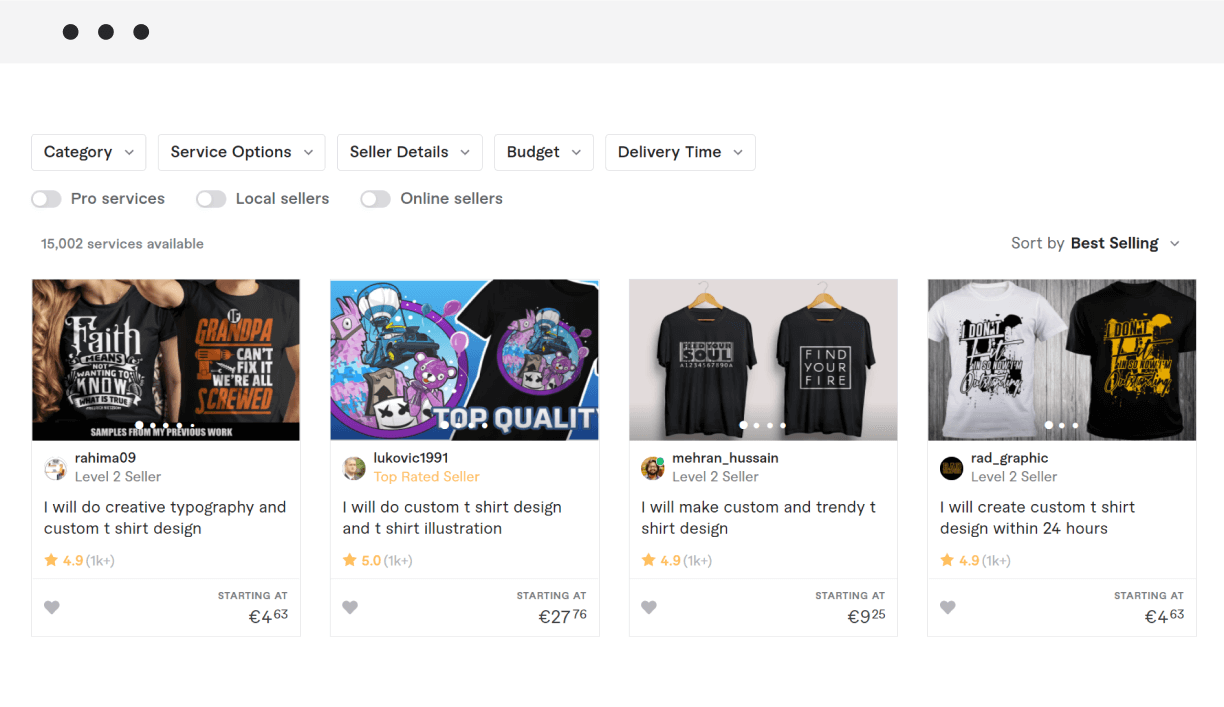
Once you’ve found your designer(s), clearly communicate your vision for the perfect design. Share your merch ideas, target audience, and specifics like colors, visual style, product type, and print requirements.
Alternatively, provide examples that match your style, and consider our article on 21 trending t-shirt designs for inspiration.
Here’s a list of freelance designer websites:
- Upwork—the largest freelance marketplace with outstanding talent.
- Fiverr—a beginner-friendly platform where some artists offer skills starting at $5.
- 99designs—a marketplace with a design category dedicated to merch.
- Dribbble—a platform featuring established designers for hire.
3. Set up and customize your merch store
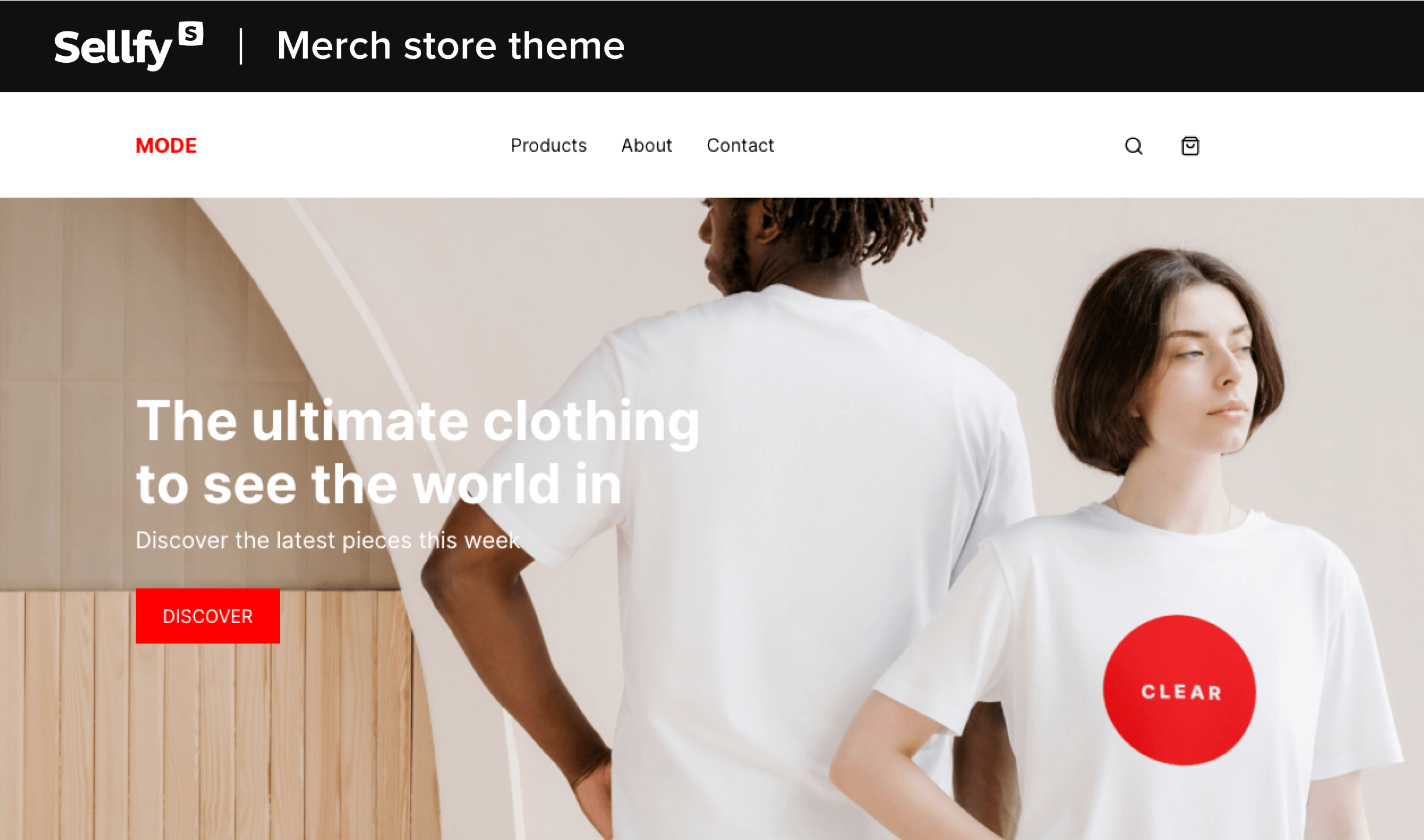
So, you’ve got your merch product and design. Now, it’s time to build an online store. But, what’s the best website for creating and selling merch?
It’s important to choose a user-friendly platform that simplifies the process of creating an online store. This is particularly beneficial for creators who may not have extensive technical knowledge.
One such platform that ticks all the boxes is Sellfy.
Sellfy is known for its ease-of-use, excellent customer service, and transparent pricing, offering a way to sell merch without hidden fees or complex setups. Additionally, the built-in feature of print-on-demand is available across all Sellfy plans.
This means you can begin selling merch immediately at no cost, without the need for third-party services.
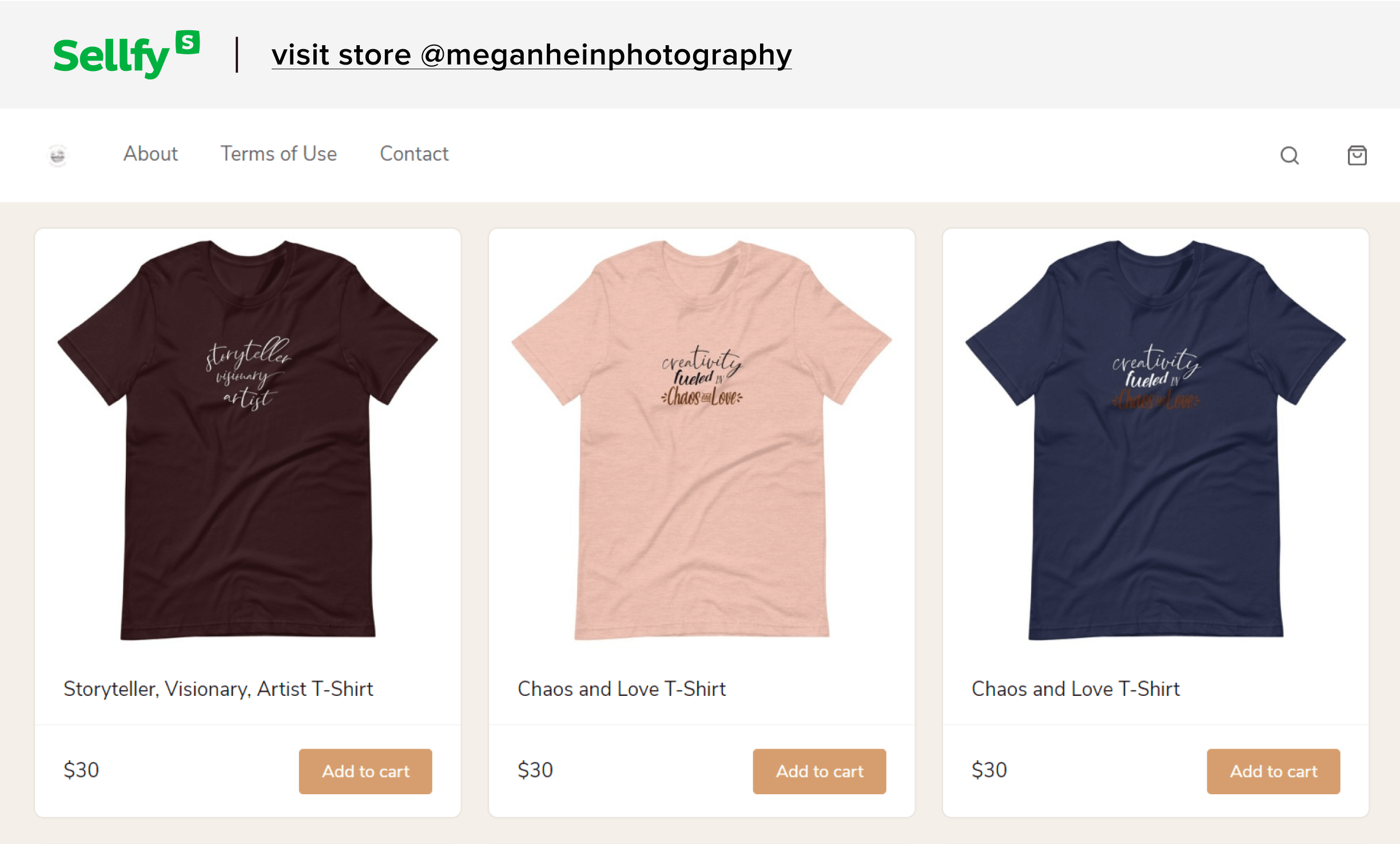
Ready to launch your Sellfy store? Follow these steps:
- Pick a subscription plan (Starter, Business, or Premium) and create an account with a valid email, or start a free trial. You can upgrade your plan for more features.
- Customize your store’s appearance using the Store Customizer tool or choose a premade merch theme like Mode.
- Bonus: download Sellfy’s mobile app from the App Store or Google Play to monitor your store’s performance and receive order notifications.

Learn how to sell print-on-demand products
See how4. Add your products and order samples
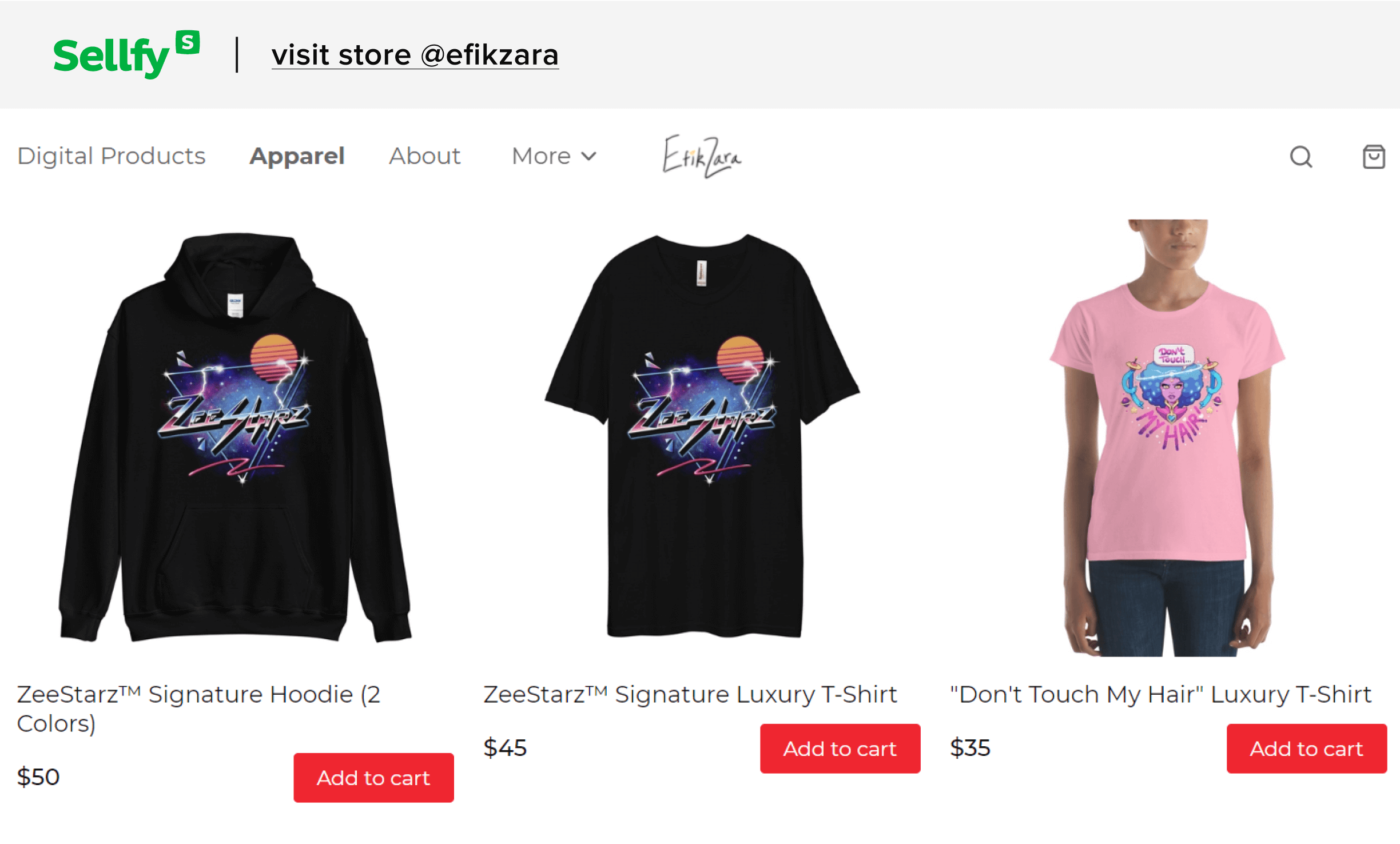
Once your store is set up, add products:
- Navigate to your dashboard’s Products section and click Print on demand.
- Choose a product category (clothing, bags, mugs, stickers, posters, or phone cases), upload designs, or add custom text. Name and describe your products.
- Save, and your merch is live on your store page!
After creating your products, order samples to showcase in photos and videos (full product price applies). This is an effective promotion method; creators often leverage platforms like YouTube, Instagram, TikTok, or Twitch to showcase their branded merchandise. TikTok creators, in particular, have seen videos of their merch lines generate thousands of sales.
5. Create merch mockups
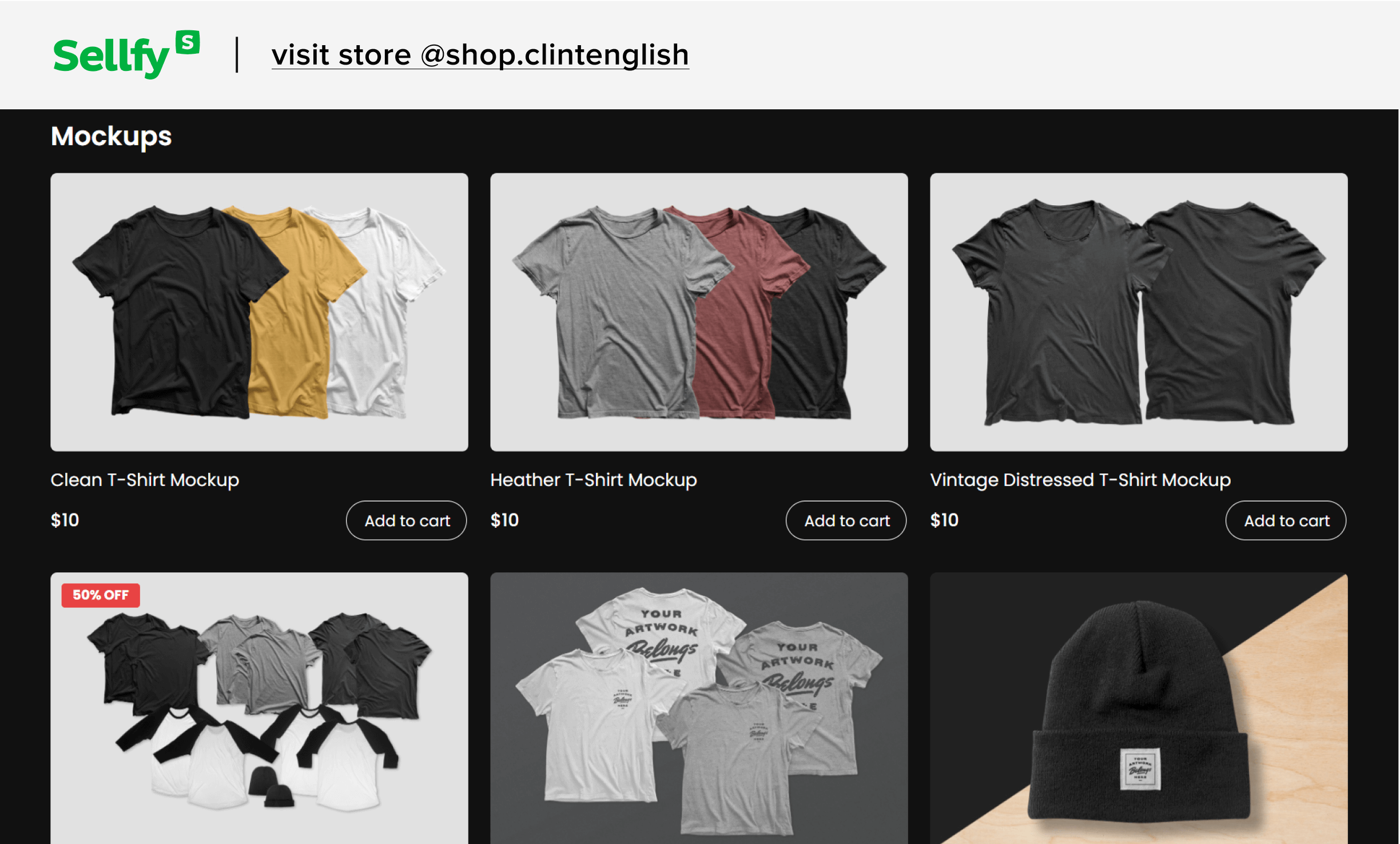
Don’t want to spend money on samples? No worries—there’s another way!
Don’t want to spend on samples? No problem! Use Sellfy’s product photos or tools like Placeit for visuals. Placeit offers free mockups and design templates, and you can create or buy t-shirt designs for $2.95.
While cost-effective, consider showcasing your merch with photos and videos over time. If you have an existing following, you’re likely to generate sufficient sales for reinvestment.
How to sell your custom merch
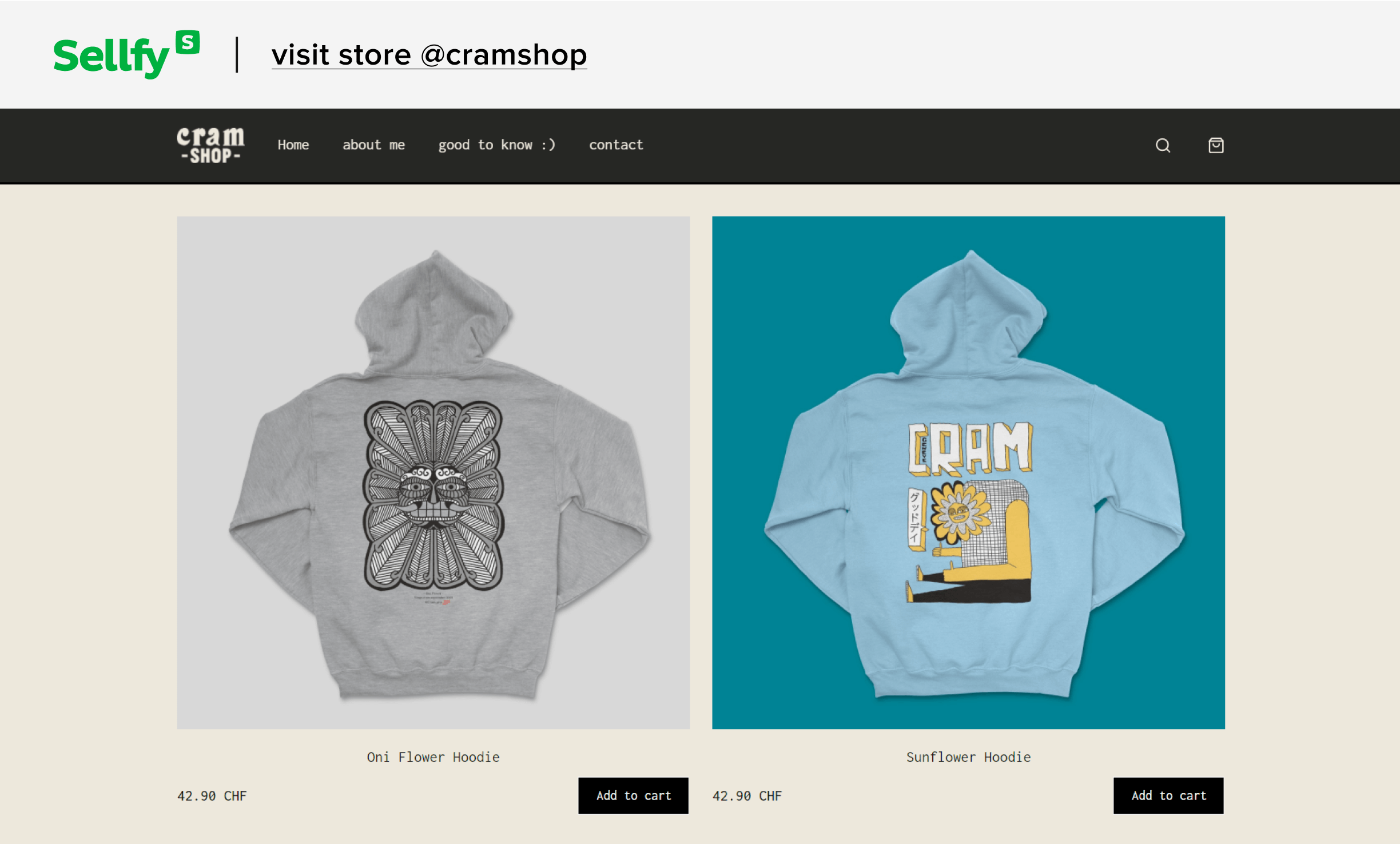
Now, the final step is to sell and promote your merch! In this section, we’ll explore at least 5 different ways: social media, paid ads, marketing tools, and launching new merch.
1. Actively promote on social media
Social media is the obvious go-to marketing strategy, so let’s delve into ideas on creating a strong online presence on sales channels like Instagram, TikTok, and more.
Showcase your merch in your content
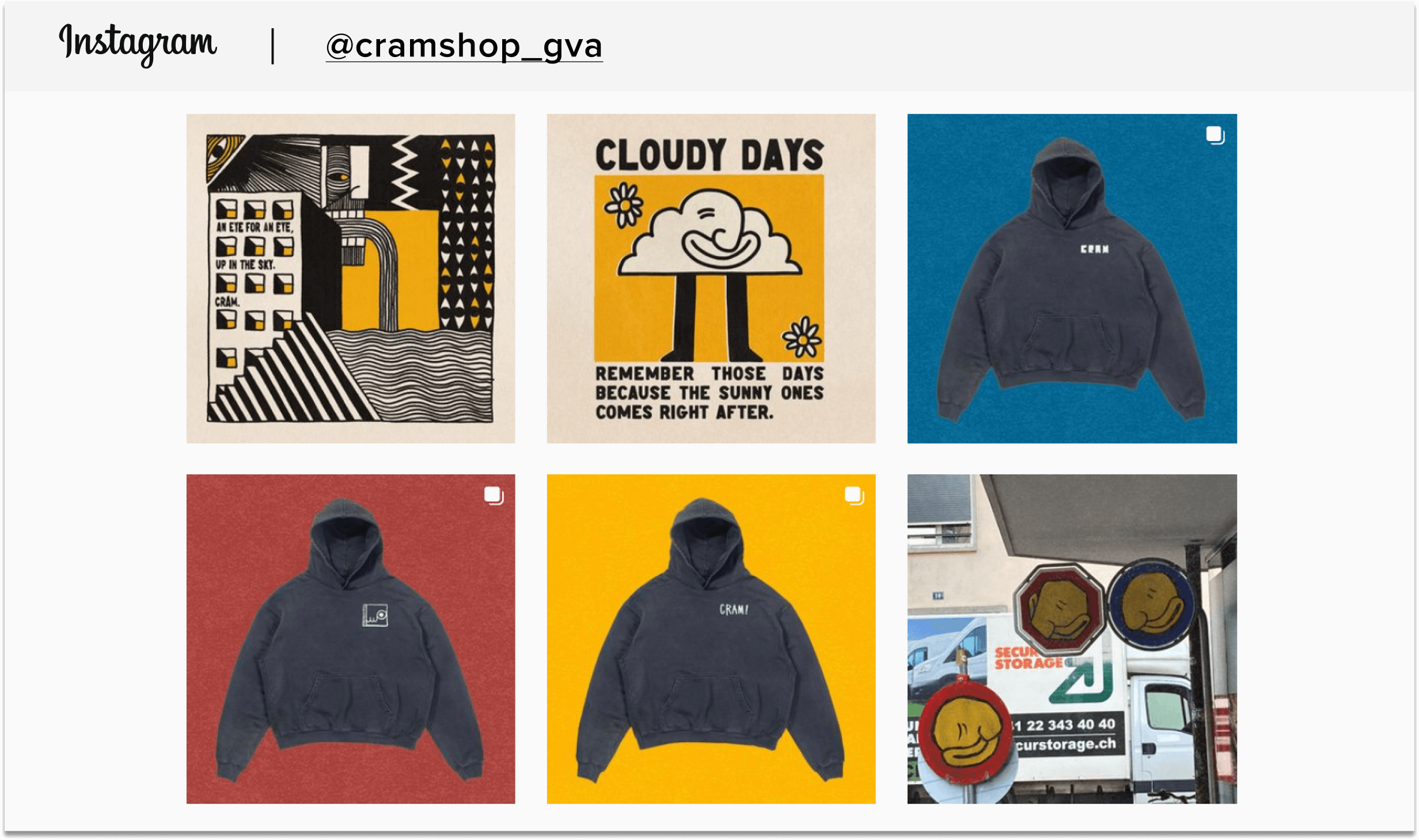
As mentioned earlier, the most effective way to connect with your fans is by wearing merch in your social media posts. Capture photos or videos showcasing yourself in your custom merchandise, and offer a sneak peek of the designs. Alternatively, go live and discuss the products you plan to sell!
Build social proof with word-of-mouth
Let your inner circle (family, friends, colleagues, or followers) promote your own brand by showcasing themselves wearing or using your products in their content. This is an incredible way to build trust, gain social proof, and get your brand identity noticed!
Besides word-of-mouth, you can also build social proof with reviews. Ask your followers or anyone who has tried your branded merch, to leave feedback and tag your account in their post.
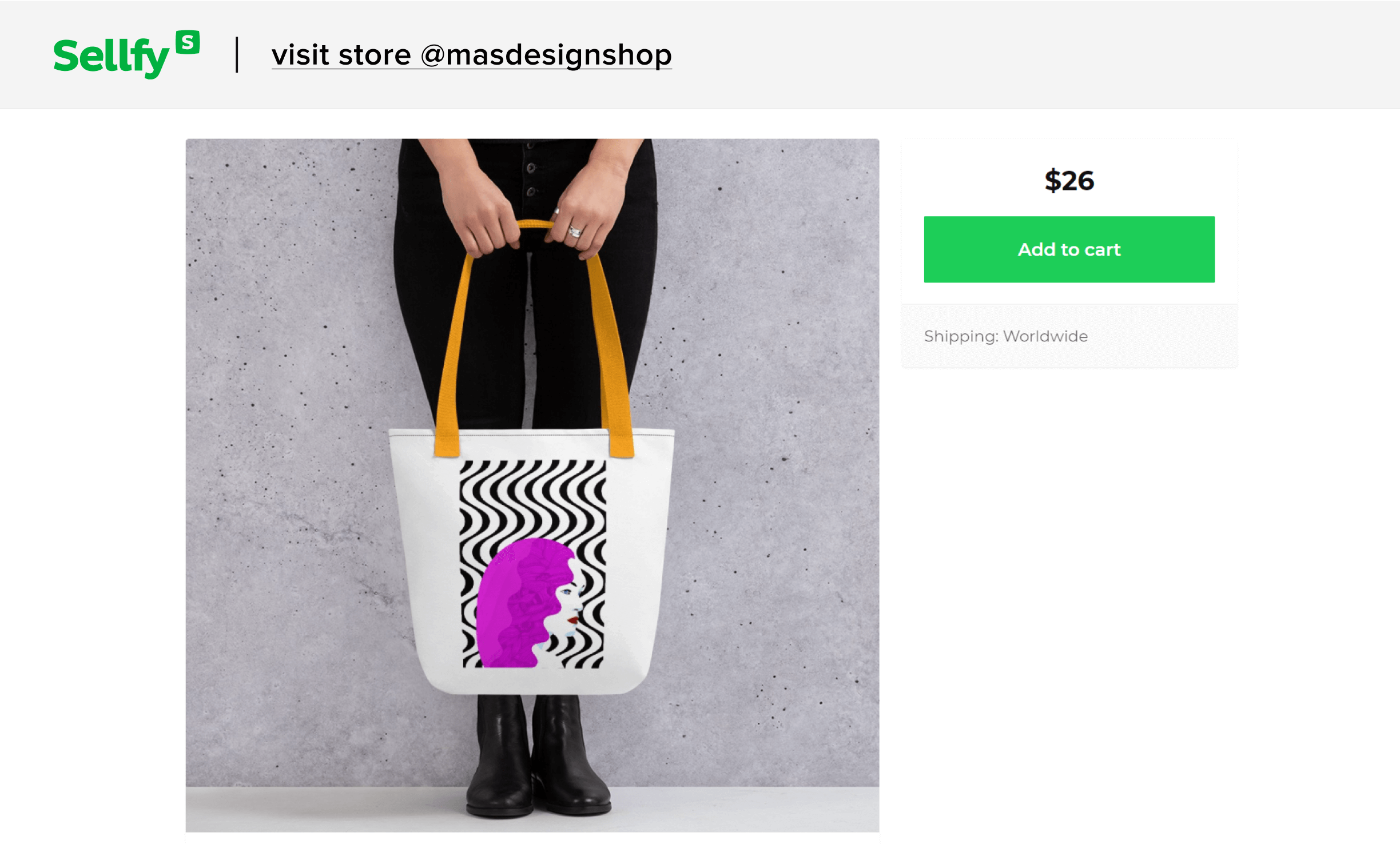
Create a branded hashtag for your merch
When utilizing word-of-mouth marketing, consider creating a branded hashtag. This ensures your merch reaches a broad audience, as many individuals enjoy tagging their favorite brands in their content.
Don’t be shy—become a TikTok star!
TikTok has rapidly emerged as the top platform for building a large audience in no time. Numerous creators have joined TikTok to share videos and expand their small businesses, and you can do the same!
All you require is a smartphone with a good camera. You can enhance lighting with a ring light or rely on natural sunlight. The standout feature of TikTok is that, once posted, your videos continue appearing in anyone’s feeds indefinitely, not just those who follow you.
There’s no need to create new videos each time.
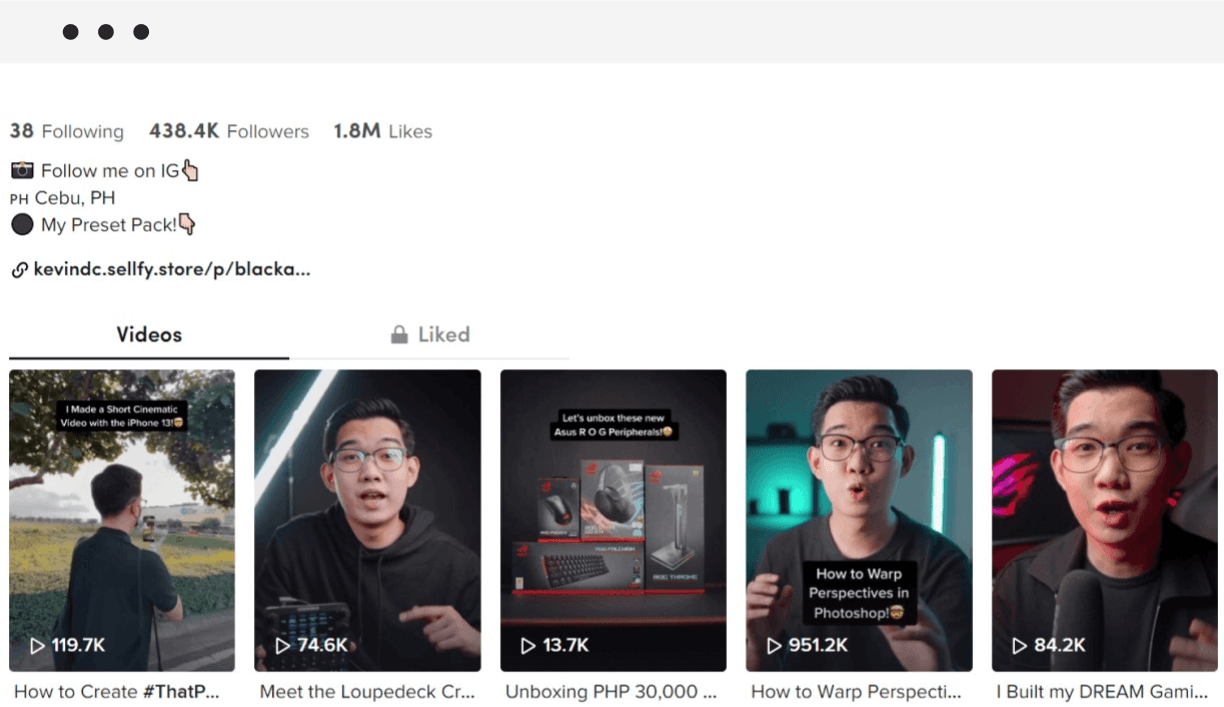
That’s why TikTok is so popular—anyone can discover your brand with its beginner-friendly algorithm. Just use 1-3 relevant hashtags, and you’re set!
You can go from a new face to an overnight TikTok star (some creators gain a million followers in six months to a year). For more on TikTok marketing, check out how to make money on TikTok.
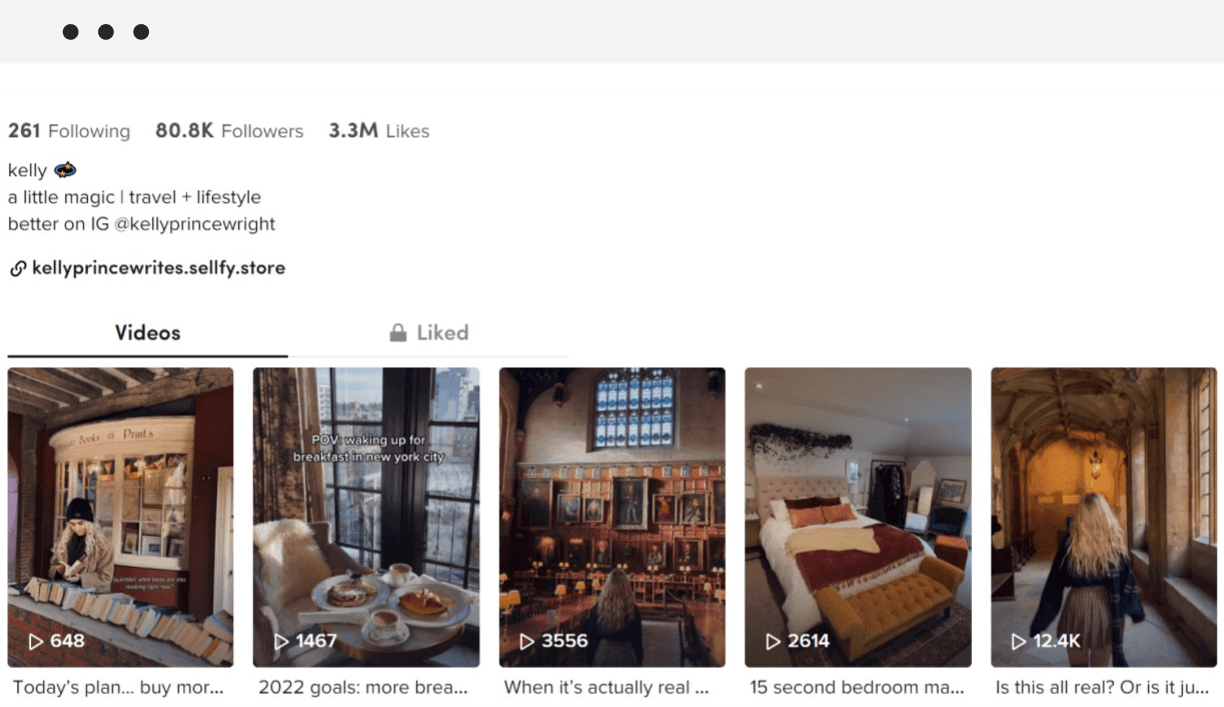
Run a free giveaway on Instagram
Try a free Instagram giveaway—people love freebies! Check our blog post on running Instagram giveaways for details. Giveaways also encourage people to try your products and tag you in their feedback.
Add your store link to your Instagram bio and other social accounts. Additionally, link to products in your Stories or use Instagram Shopping. For more on Instagram marketing, explore our selling on Instagram article.
2. Use paid advertising if your budget allows
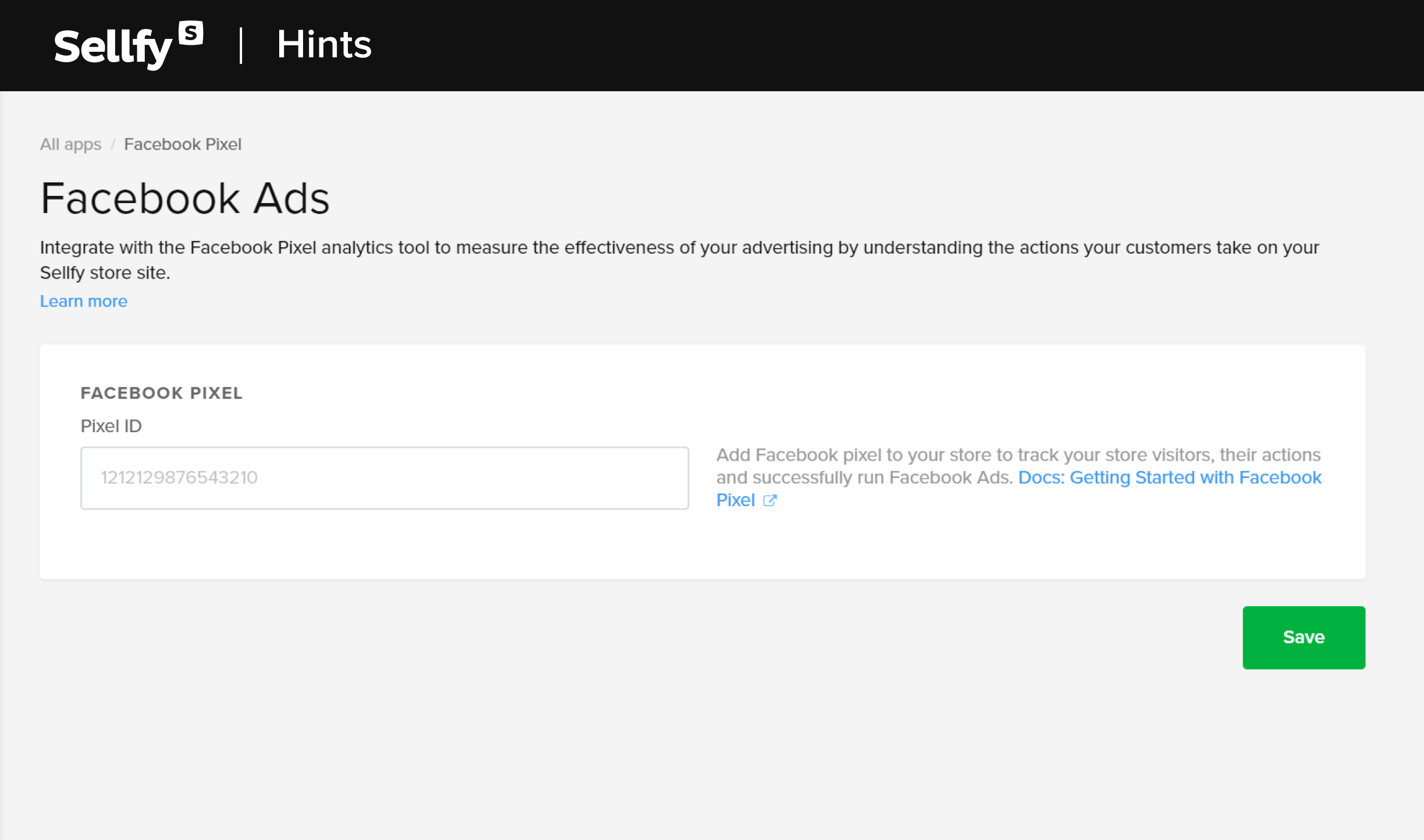
For an existing fan base, stick to word-of-mouth, giveaways, and other promotions. If you’re starting, consider paid advertising. Targeted ads let you control spending and reach your audience efficiently.
Boosting a Facebook post, for example, enhances visibility and attracts potential customers. Explore Instagram advertising too—define budget, schedule, and format.
3. Drive sales with Sellfy’s built-in marketing tools
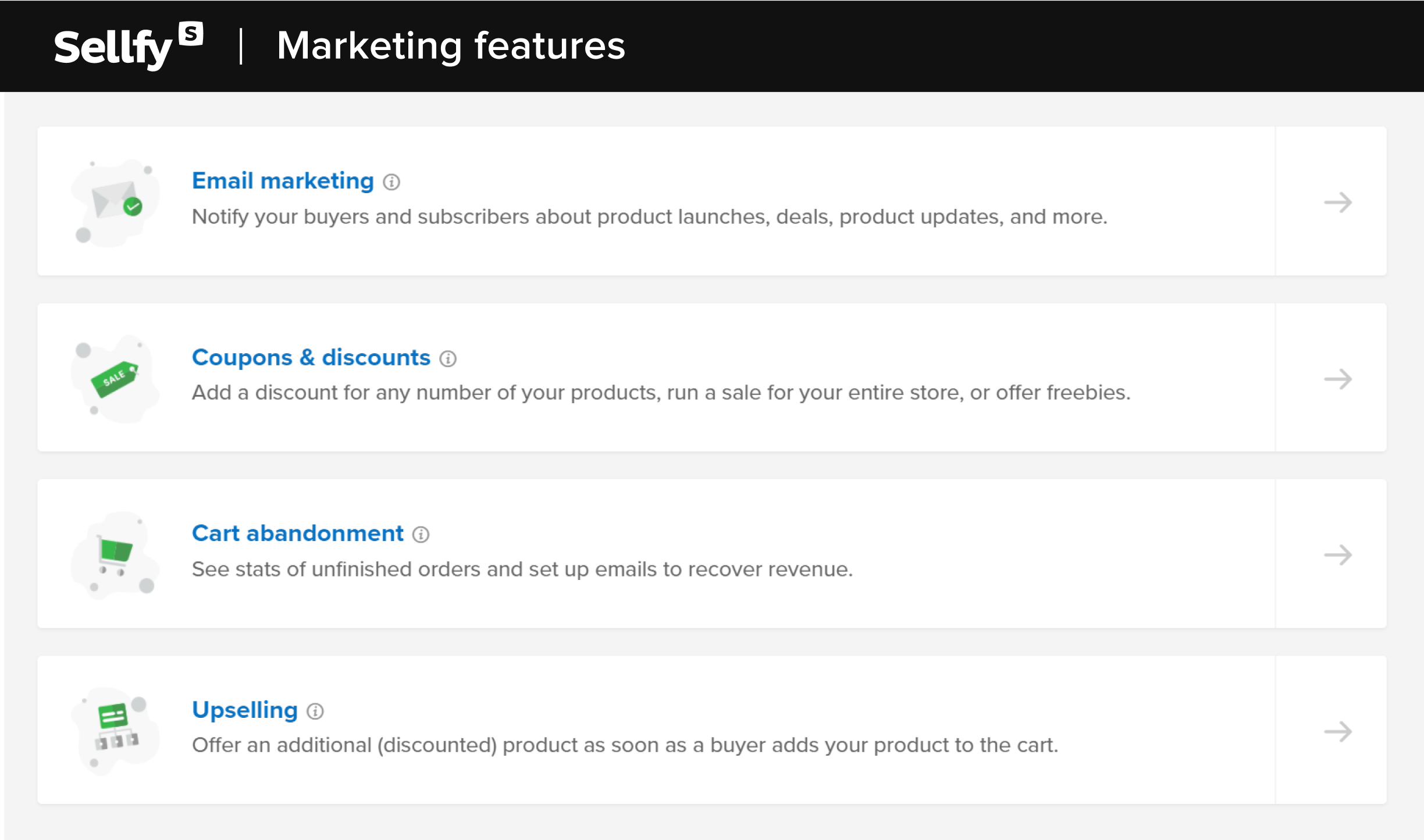
Sellfy offers a variety of built-in marketing tools to help you effectively promote a merch sale.

Learn how to sell print-on-demand products
See howHere’s a list of Sellfy’s top marketing features:
- Coupons and discounts—add discounts, run holiday sales, create flash deals, or offer freebies.
- Cart abandonment—monitor unfinished orders, and set up emails with special offers to recover missed sales.
- Upselling and cross-selling—provide additional discounted products when a buyer adds an item to the cart.
- Email marketing—send out newsletters, announce big launch dates, promote upcoming products, surprise fans with giveaways, get feedback via surveys, etc.
- Embed options—embed customizable Buy Now or shopping cart buttons, single products, or your entire store page anywhere on the web to boost sales.
- Analytics—while not a marketing tool, it’s worth mentioning as you can track store visits, top products, traffic sources, business performance, and more.
4. Build excitement around new merch
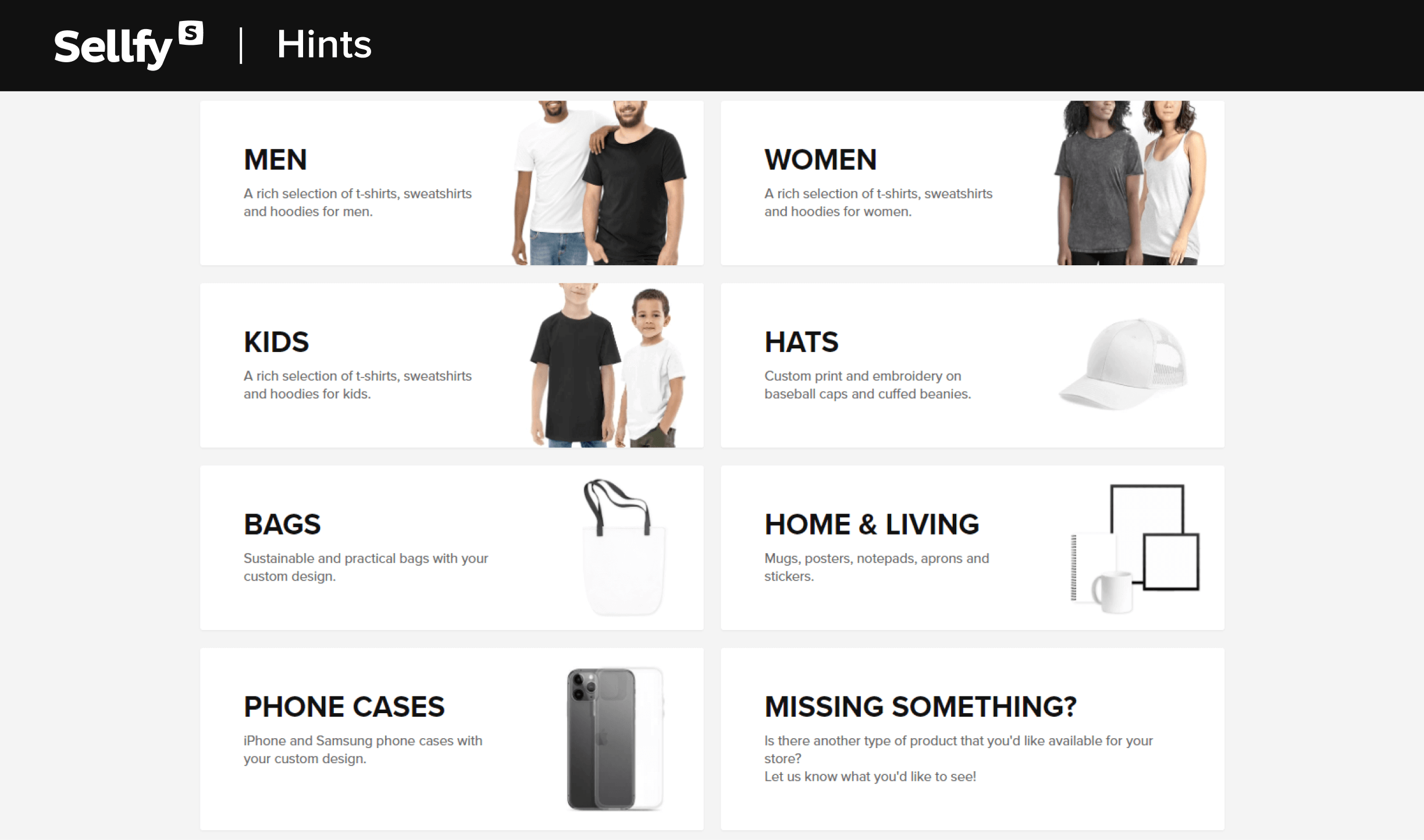
Periodically, consider updating or introducing new products. The product life cycle typically involves four stages: introduction, growth, maturity, and decline.
During the growth stage, sustaining sales through promotions and expanding to new locations is crucial. In the maturity stage, the product slows down, and if decline occurs, understanding its cause is essential.
If the market is shrinking, explore new markets; if it’s product-specific, make adjustments.
While refreshing existing merch can help, introducing new items or designs, including limited editions, excites customers and ensures ongoing enthusiasm for your online shop.
FAQ: how to make and sell merchandise online
Does it cost money to make merch?
You can create merch with no upfront cost by using Sellfy’s print-on-demand a free design tool like Canva. Sellfy’s integration further reduces costs by producing and shipping merchandise only when orders are placed.
How to create a merch store?
You can easily set up an online shop with Sellfy, upload merch designs, and manage payments without worrying about inventory, production, and shipping logistics. Sellfy streamlines the process with built-in print-on-demand.
Does selling merch make money?
Yes, selling merch can be profitable. Success hinges on factors like merch quality, effective marketing, target audience understanding, and a strategic pricing approach. Meticulous planning and execution can turn selling merch into a lucrative revenue stream.
English
Related topics
Tips for creators
Join thousands of creators receiving sales tips, marketing resources, and inspiring stories. No spam, pure value.



